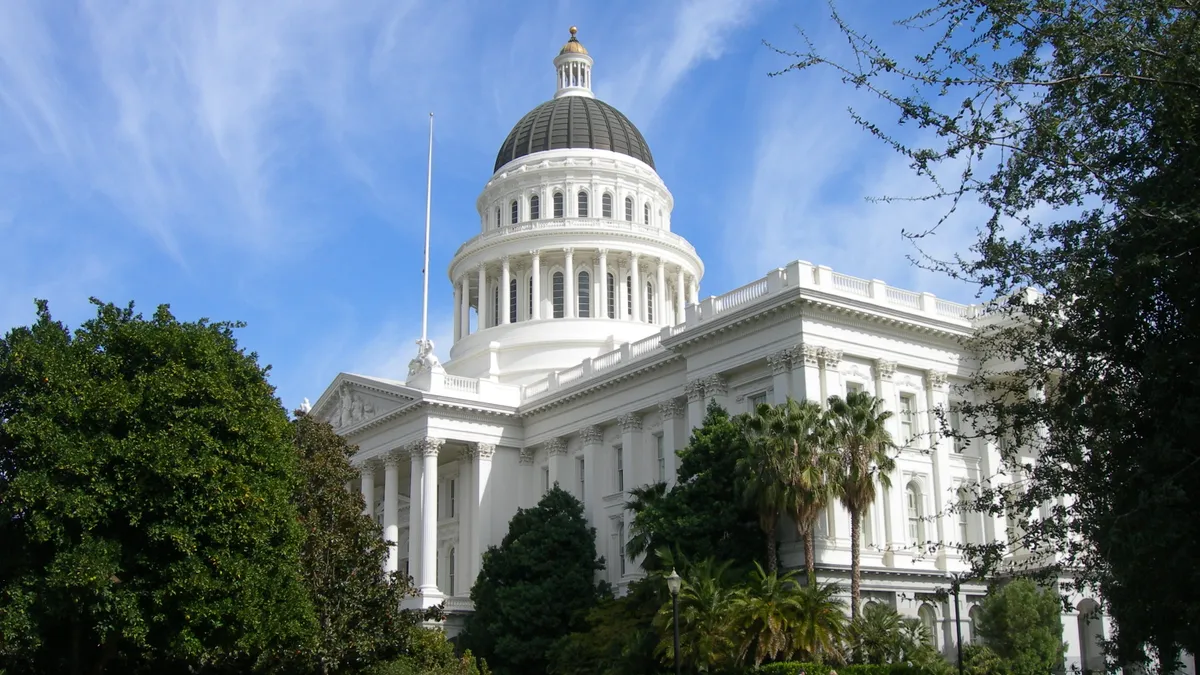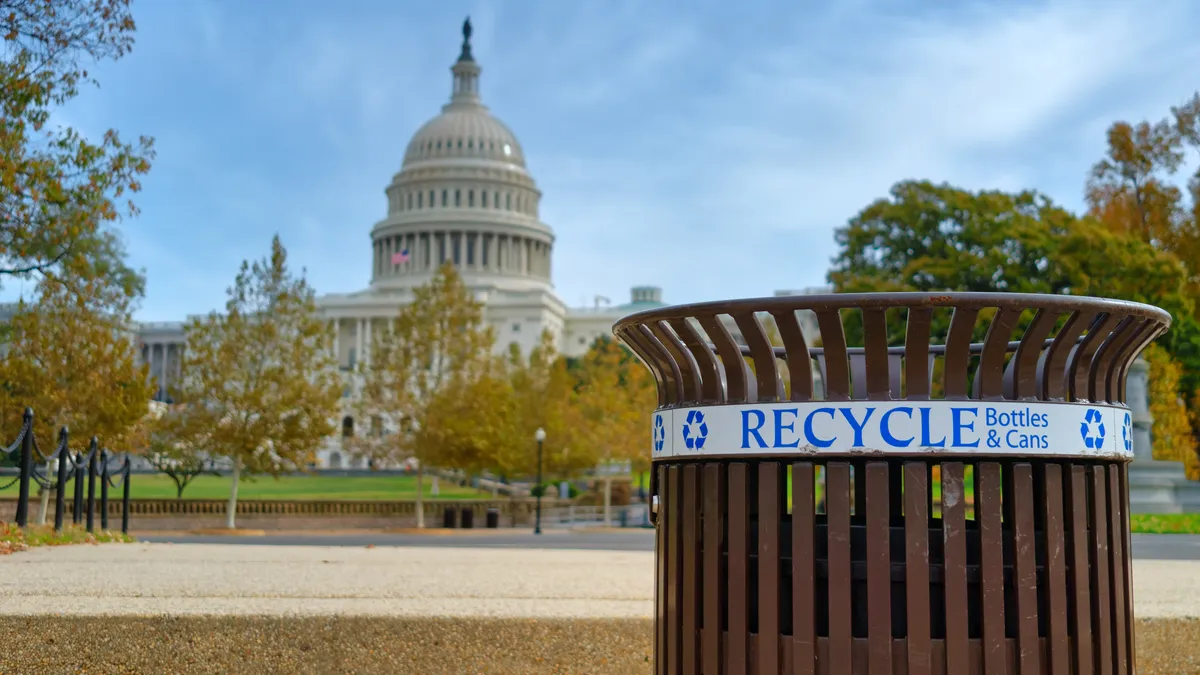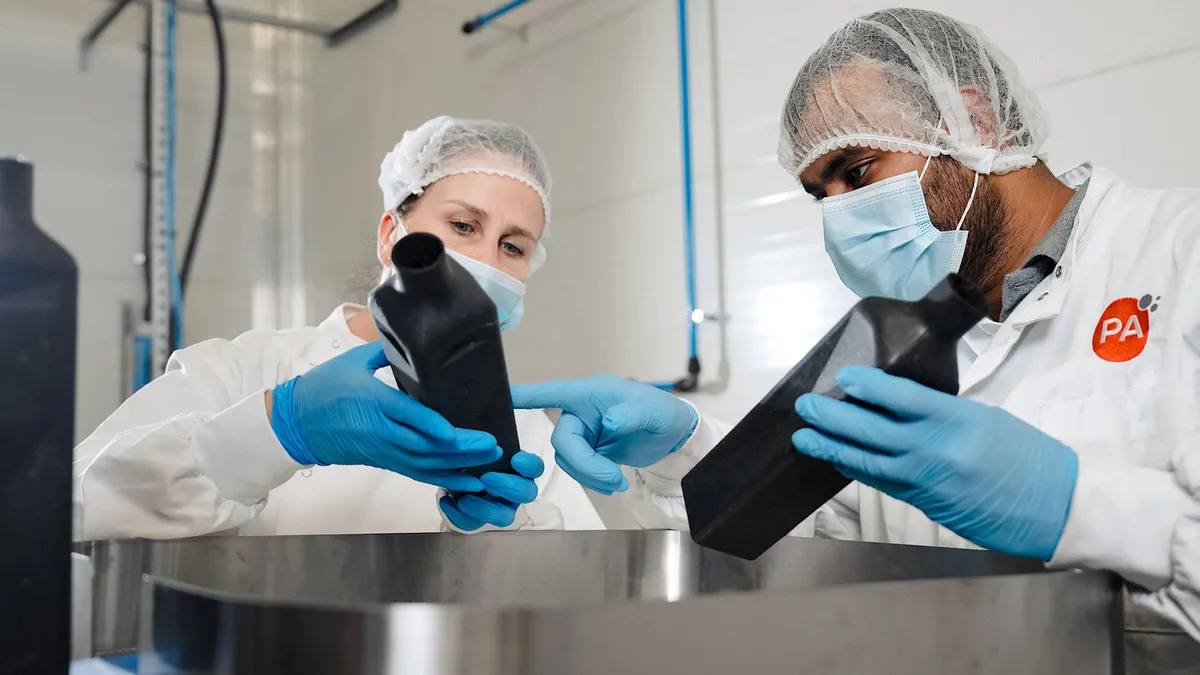Multiple bills with implications for packaging, including ones potentially restricting labeling with “sell-by” dates and expanding the bottle bill to accept larger containers, advanced in California ahead of a Friday deadline to pass out of their chambers of origin. California has made waves in state materials management policy in recent years, including with minimum recycled content requirements and extended producer responsibility for packaging.
A date label reform bill, AB 660, passed the California State Assembly and moved to the State Senate. Come 2025, such a law would prohibit the sale of food products with “sell by” noted on the label. The bill had backing from nonprofit environmental research and advocacy organization Californians Against Waste as well as the Natural Resources Defense Council, largely as a means to cut down on food waste that results from consumer confusion around expiration dates.
AB 1207, a bill related to cannabis labeling and advertising, also passed the Assembly and advanced to the Senate. It aims to avoid any packaging considered “attractive to children,” including those that could be “easily confused” with food products typically marketed to children. Similarly, Rhode Island lawmakers this year put forth legislation requiring that all cannabis products use packaging that is child- and tamper-resistant. The California Cannabis Manufacturers Association has opposed the bill, saying it “will increase cost burdens on the licensed cannabis industry while empowering an unlicensed market that flagrantly markets to children.”
SB 353, a potential bottle bill expansion, passed the Senate and is headed to the Assembly. The changes would add 100% fruit juice containers over 46 ounces, and vegetable juice containers over 16 ounces, neither of which are currently not covered by the program. By being added to the bottle bill program, these types of plastic containers would face requirements for postconsumer recycled content come 2026.
The bill is strongly supported by Californians Against Waste, which says it would create over 200 million new redemption opportunities annually, as well as by numerous recyclers, the Institute of Scrap Recycling Industries and recycled glass and plastic processor Strategic Materials. The bill did not receive opposition.
Other bills related to certain plastics used in packaging have not advanced.
AB 1290 sought to prohibit the sale or certain plastics deemed toxic or non-recyclable. Come 2026, nearly all opaque or pigmented PET bottles would have been banned, along with plastic packaging containing non-detectable pigments, oxo-degradable additives, regulated PFAS, polyvinyl chloride and polyvinylidene chloride. It would also rigid plastic packaging containers with polyethylene terephthalate glycol (PETG).
A bill analysis cites the U.S. Plastics Pact’s problematic and unnecessary materials list, noting that the bill would phase out a subset of those identified materials. Bill sponsors included the materials in the bill because they contribute to contamination of the recycling stream and the proliferation of microplastics. The bill was ordered inactive on May 31. It previously received opposition from numerous packaging stakeholders, including Ameripen, the Association of Plastic Recyclers, Berry Global, Dart Container, the Flexible Packaging Association and more.
AB 891 would have required the California’s Department of Resource Recovery and Recycling, which administers the state’s Container Recycling and Litter Reduction Act, to provide a 10% reduction in the processing fee applicable to the percentage of a beverage container’s weight that’s derived from nonpetroleum biomaterials. Assemblymember Jacqui Irwin explained that the intent was to incentivize recyclable alternatives to fossil fuel-based plastics. The bill was held under submission as of May 18. It was previously opposed by the American Beverage Association, Consumer Brands Association, and International Bottled Water Association.
Any bills have until Sept. 14 to pass.















